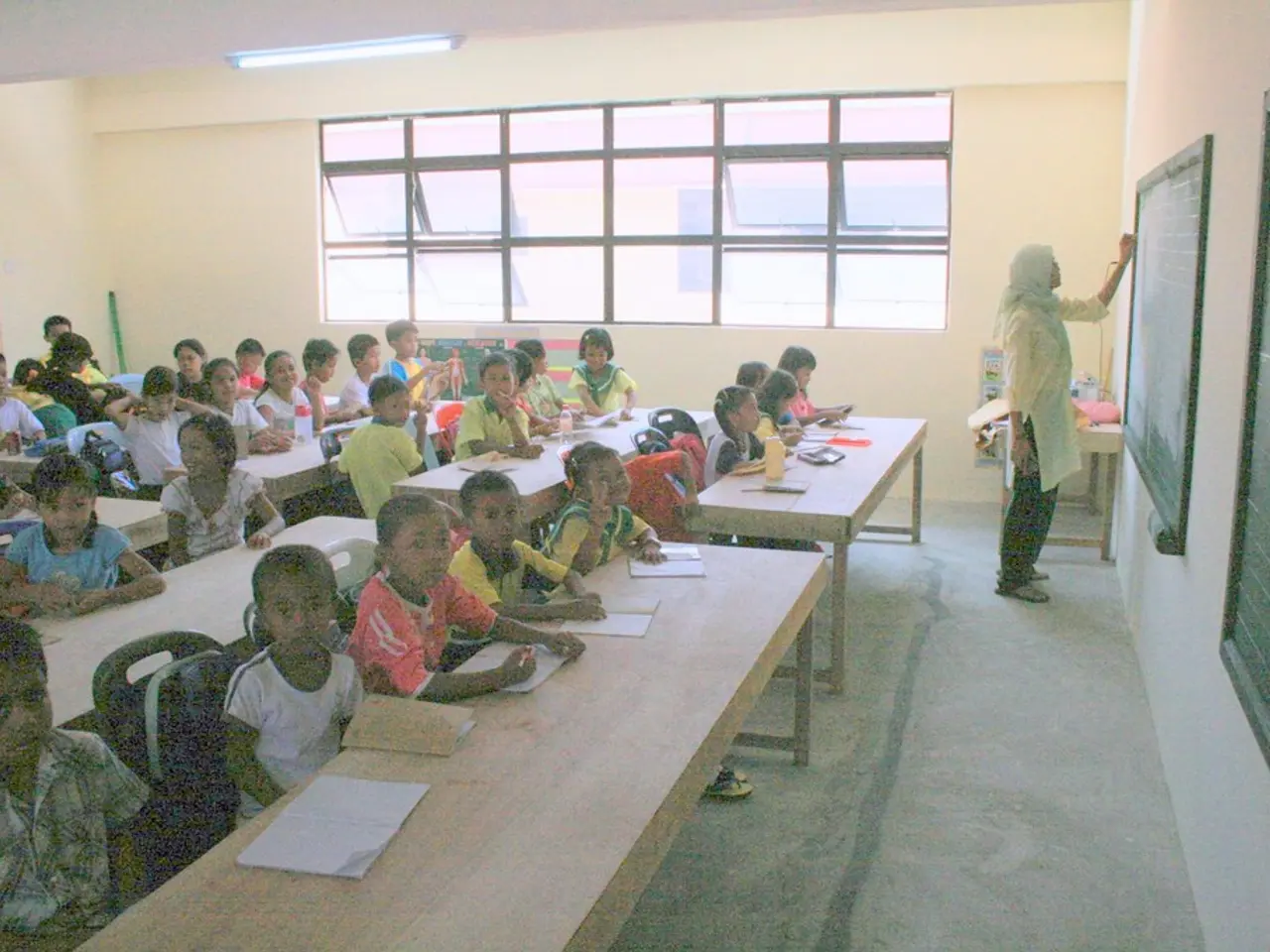"A List of 10 Educational Objectives for IEP (Individualized Education Program) to Assist Pupils in Overcoming Barriers"
In the realm of education, motivation plays a significant role in teaching new executive functioning skills. By incorporating a child's interests into learning, we can foster an environment that encourages growth and development. One key aspect of executive functioning is problem-solving, the ability to identify and describe a problem, and come up with solutions to resolve it.
Role-playing is an effective strategy in helping a child practice problem-solving skills in various situations. Through role-play, children can learn to think critically, make decisions, and develop strategies to overcome challenges. Knowing when and who to ask for help is essential for problem-solving, and it's crucial to instil in children the importance of seeking assistance when needed.
A child's ability to problem-solve is related to other executive functioning skills like task initiation and organization. Struggling with problem-solving skills can lead to problem behaviours such as talking back, aggression, and self-destructive behaviours. Therefore, it's essential to address these skills early and effectively.
When working on problem-solving skills, it's beneficial to focus on other executive functioning skills as well. Effective strategies for writing IEP goals that address problem-solving skills for students with executive functioning issues include breaking down tasks into manageable steps, teaching students to develop and use daily schedules or task lists, and focusing on specific components like planning, organizing, task initiation, and task completion.
IEP goals for problem-solving should target specific executive functions, include measurable objectives with clear criteria for success, incorporate strategies that scaffold problem-solving processes, use individualized supports aligned with the student's strengths and needs, and promote gradual independence and self-monitoring. Examples of IEP goals for problem-solving include generating appropriate solutions with a certain accuracy rate, applying a pre-taught problem-solving technique in documented situations, completing coping strategies with positive behavioral outcomes, and creating five-paragraph essays with proper structure.
Resources from technical assistance programs and educational therapy providers are valuable for tailoring and refining these goals. The Real Life Executive Functioning Skills Assessment and The IEP Goal Bank are useful tools for identifying a child's problem-solving struggles. Behavioural observations can also be useful for identifying deficits in problem-solving skills.
Signs that a child may struggle with problem-solving include difficulty completing games and puzzles, inability to identify all parts of a problem, inability to break a larger problem into smaller parts, inability to solve problems in various contexts, reluctance to seek guidance, and lack of persistence in coming up with new strategies when the original ones are not successful.
The IDEAL Method is a strategy to help a child become a better problem solver. By involving all members of a child's care team when writing problem-solving goals, we can ensure a holistic and comprehensive approach to addressing these challenges.
For more executive functioning IEP goal ideas, visit the EF IEP Goal Resource Hub. By addressing problem-solving skills, we can help children develop the essential skills they need to navigate the complexities of life with confidence and success.
Life skills such as goal setting, time management, and problem-solving are heavily intertwined with executive functioning in the realm of education-and-self-development. Learning to become a better problem solver can significantly contribute to personal-growth and improve one's ability to handle life's challenges effectively. Implementing strategies like the IDEAL Method and focusing on other executive functioning skills can help in effectively addressing problem-solving issues, fostering a child's learning and development.




